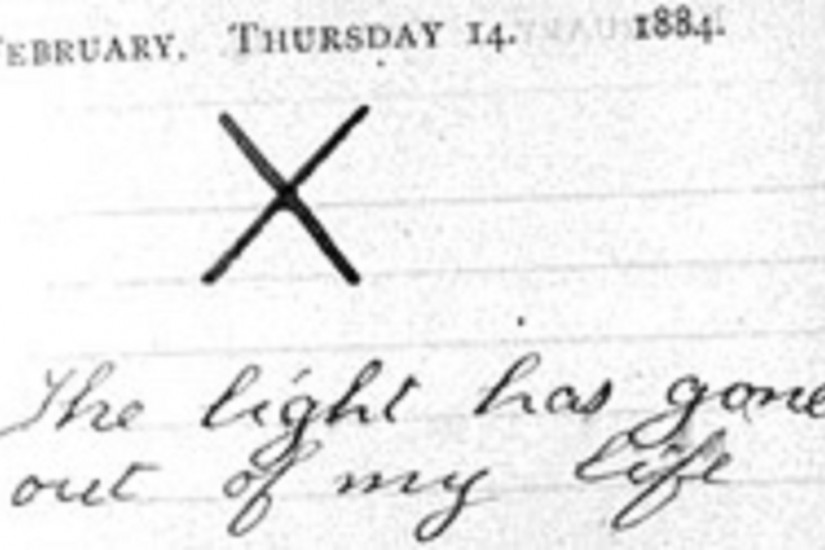Roosevelt rushed back to New York City, but by the time he got there at midnight on February 13, Alice was slipping into a coma. Distraught, he held her until he received word that his mother was dangerously ill downstairs. For more than a week, “Mittie” Roosevelt had been sick with typhoid. Roosevelt ran down to her room, where she died shortly after her son arrived at her bedside. With his mother gone, Roosevelt rushed back to Alice. Only hours later she, too, died.
On February 14, 1884, Roosevelt etched a heavy black X in his diary and wrote “The light has gone out of my life.” He refused ever to mention Alice again.
Roosevelt’s profound personal tragedy turned out to have national significance. The diseases that killed his wife and mother were diseases of filth and crowding—the hallmarks of the growing Gilded Age American cities. Mittie contracted typhoid from either food or water that had been contaminated by sewage; New York City did not yet treat or manage either sewage or drinking water. Alice’s disease was probably caused by a strep infection, which incubated in the teeming city’s slums and tenements. Roosevelt had been interested in urban reform because he worried that incessant work and unhealthy living conditions threatened the ability of young workers to become good citizens. Now, though, it was clear that he, and other rich New Yorkers, had a personal stake in cleaning up the cities.
The tragedy gave him a new political identity that enabled him to do just that. Ridiculed as a “dude” in his early career, Roosevelt changed his image in the wake of the events of February 1884. Desperate to bury his feelings for Alice along with her, Roosevelt escaped to Dakota Territory, to a ranch in which he had invested the previous year. There, he rode horses, roped cattle, and toyed with the idea of spending the rest of his life as a western rancher. The brutal winter of 1886-1887 changed his mind. Months of blizzards and temperatures as low as -41 degrees killed off 80% of the Dakota cattle herds; more than half of Roosevelt’s cattle died. Roosevelt decided to go back to eastern politics, but this time, no one would be able to make fun of him as a “dude.” In an era when the independent American cowboy dominated the popular imagination, Roosevelt ran as a western cowboy taking on corruption in the East. And, with that cowboy image, he overtook his eastern rivals.
